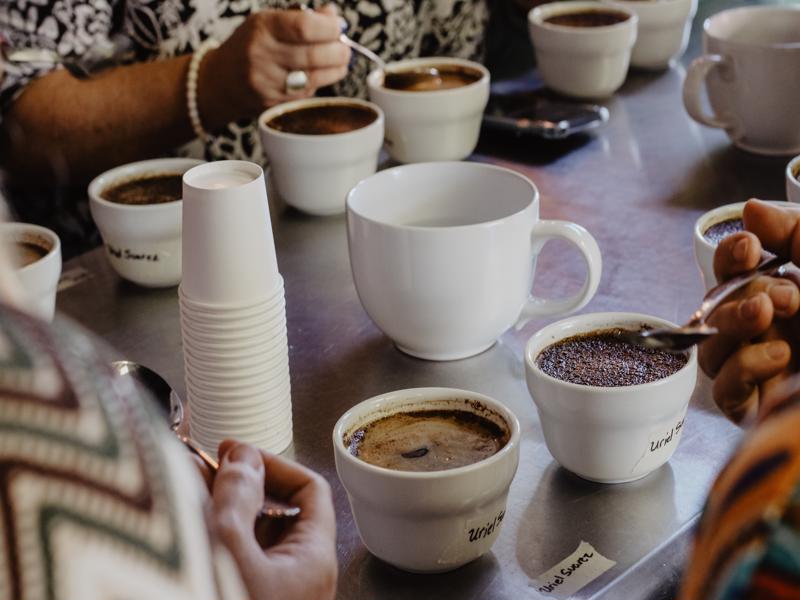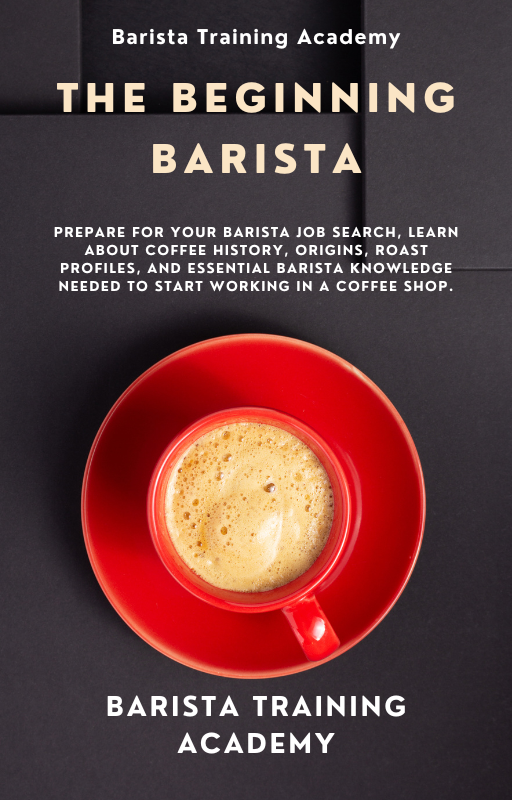Online Barista Training: Understanding the Flavor of Coffee
This is a complicated question. We know what good or bad coffee tastes like for many coffee drinkers, but it’s still difficult to articulate in words. As a part of this online barista training course, we'll talk about coffee flavor and distinguish bad coffee from good.
We could use plenty of flowery words to describe coffee (and many people do) but does it fully capture what coffee tastes like?
We use words like bitter, sweet, strong, and bold. Adjectives like caramel, blueberry, peach, chocolate, pumpkin, and nutty are in use too.
These are neither wrong nor right.
In this article, we'll talk about coffee tasting. When you brew or dial in your espresso, you need to know exactly what characteristics in the coffee you want to achieve. Of course, every coffee blend or single-origin coffee is different, but usually, coffee shops work with one or two of them. If you want to become a good barista, you need to know the “taste” of your coffee.

Coffee Tasting
There are many variables to coffee multiplied by the differences in everyone’s palate, taste, and even someone’s taste buds. Even the same coffee will always taste different from someone else.
Even the same roasted coffee brewed or extracted differently will taste different. The dose size, the amount of water, the extraction time, the temperature, the type of filter, and the brewing method will alter your experience with coffee.
There are over 1000 different flavonoids that have been identified and can alter the taste of the coffee.
And still… as a barista, it will be an important question to consider because you will taste coffee every day – to deliver the best-tasting coffee you can serve.
Coffee Flavor – Training Your Barista Taste Buds
Let’s consider what impacts the taste of your coffee. Here are a few of the many, many variables that impact the taste of the coffee. Appreciating each of the factors will help us be a better barista.
- Coffee species (Robusta or Arabica)
- Coffee origin (Guatemala or Ethiopia, etc.)
- Is the coffee shade-grown or not
- Is the coffee organic or not (debatable)
- The type of soil it’s grown on
- The elevation it’s grown on
- The quality of the crop
- Whether it was a “rainy or dry” season
- How the coffee was picked or harvested
- The degree of impact from pests or fungus
- How the coffee is processed after it was picked (Wet, dry, or both)
- The general quality of the coffee (The worst coffee is used for instant coffee)
- Shipping & care during handling
- Age of the coffee after it was processed
- Roasting (Espresso or light roast)
- How long the coffee is sitting after roasting
- How the coffee is extracted or brewed (Espresso machine or pour-over, for example)
- The quality of the water used for extracting coffee
- The dose amount of coffee
- The amount of water used
- The temperature (heat) of the water
The list goes on…and on!
The Impact on Coffee Taste
Yes, all of the above following impacts the taste of coffee! Additionally, the drinker’s own taste buds and olfactory sensory neurons located in the upper nasal passages impact how the taste is perceived.
Most people don’t drink straight espresso in the United States. So we cannot forget the role that the quality and quantity of milk will have on the taste of many coffee drinks.
Let’s briefly get back to the coffee taste topic and how you should lean in on different definitions as a barista. As you get your barista training and even years into your coffee career, you will develop your own taste.

How to say if the cup of coffee is good or bad?
As a barista, you may pour a great cup of coffee only to have it sent back because it’s too bitter or not “tasting right.” To each his (or her) own, right?
Still, some general concepts regarding “coffee taste” that I’d like to discuss briefly.
Bitterness
Let’s start with bitterness because it’s a word to describe coffee. In fact, if the coffee tastes bad… you can hear that it's “bitter” or “too bitter.” I believe that’s fine because finding another description can be difficult, especially if you’re not a frequent coffee drinker.
A couple of coffee (quinic acid and trigonelline) compounds give coffee its bitter taste. Caffeine is bitter in taste. Can it be that the more caffeine a coffee beverage has, the more it will lean into “bitterness”? Perhaps this is true.
No doubt, describing anything as “bitter” has some negative connotations. Often, according to Tristan Stevenson, in his book The Curious Barista's Guide to Coffee, the presence of bitterness in your coffee is the result of over-extraction. So a slow espresso extraction or waiting too long to French brew can cause bitterness.
Acidity
While acidity sounds bad, acidity is a fundamental part of your coffee taste. Acidity provides the brightness of coffee we all enjoy, the fruity, citrusy taste common in our palates, and note to be good-tasting coffee.
Aroma
Ahhh… there is nothing quite like the wonderful aroma of coffee in the morning. The aroma makes up a large part of our joyful experience with coffee. The overall coffee flavor is enjoyed by and large with our ability to smell. In fact, as mentioned a little earlier than our body’s use of our olfactory sensors play an important role in taste. These sensory factors can vary from person to person and therefore impact our taste and profile perceptions.

Brought to you by Barista Training Academy, “The Beginning Barista,” Your Ultimate Prep Guide to Getting Your First Job as a Barista” is an ultimate resource that is available online and is affordable for anybody who is looking to start a career in the coffee industry. For more information, visit our blog.
